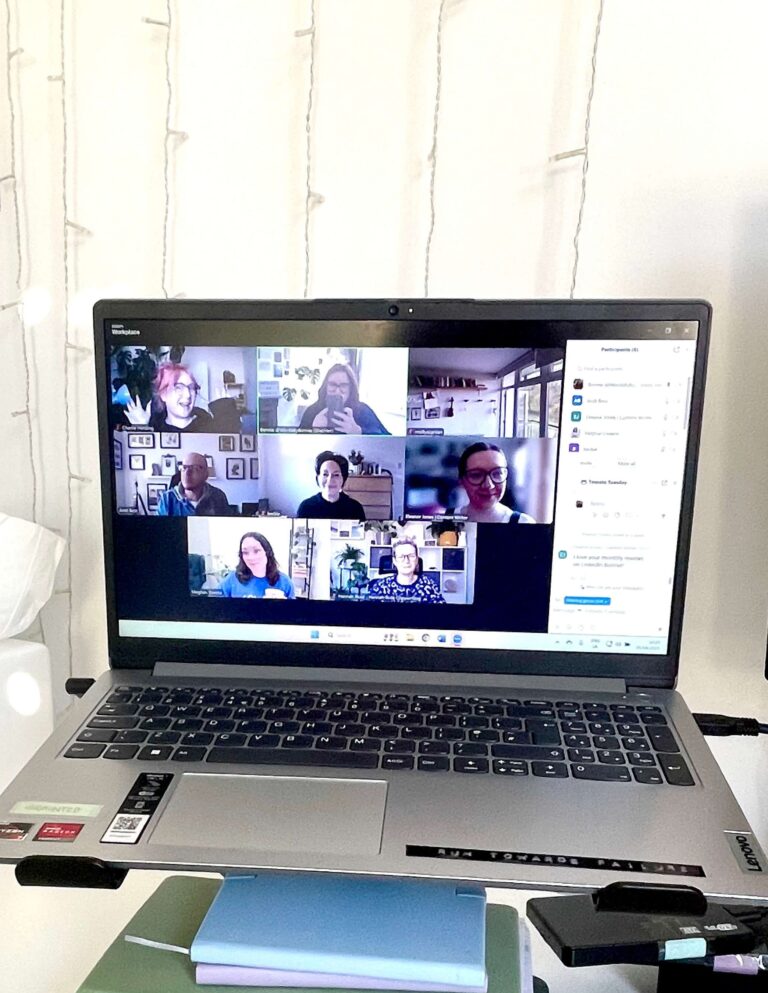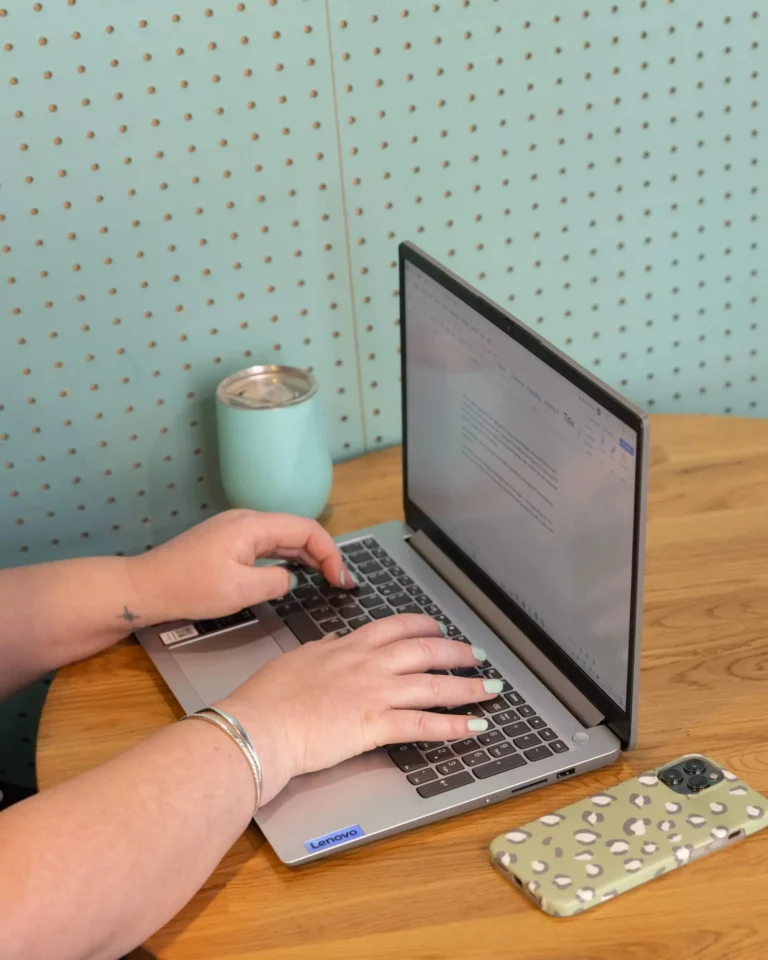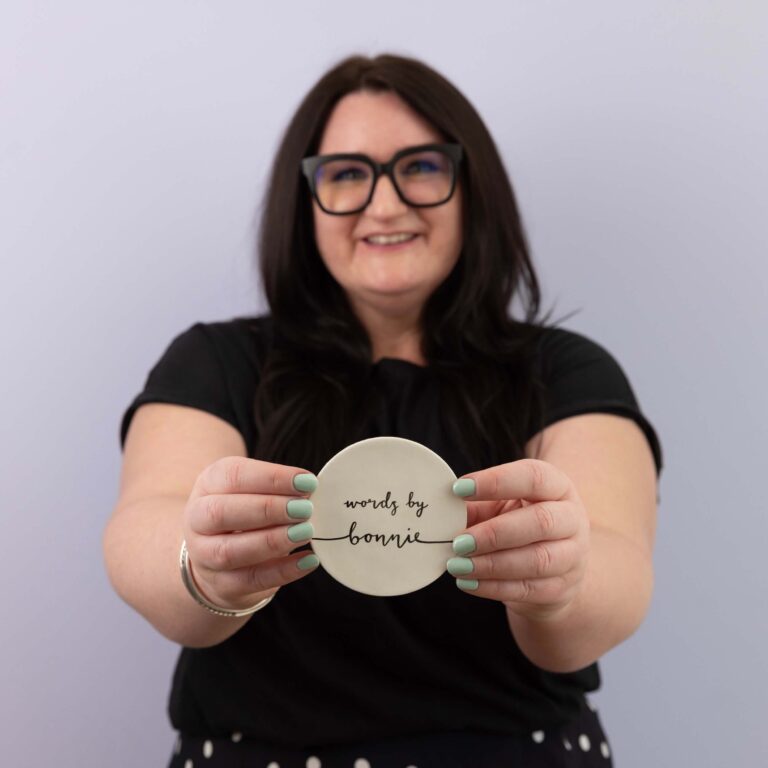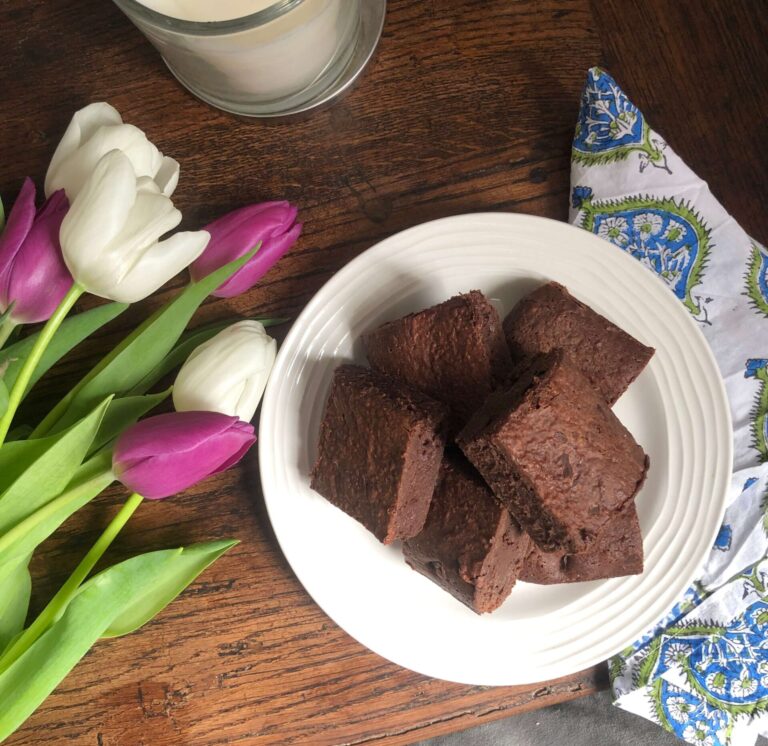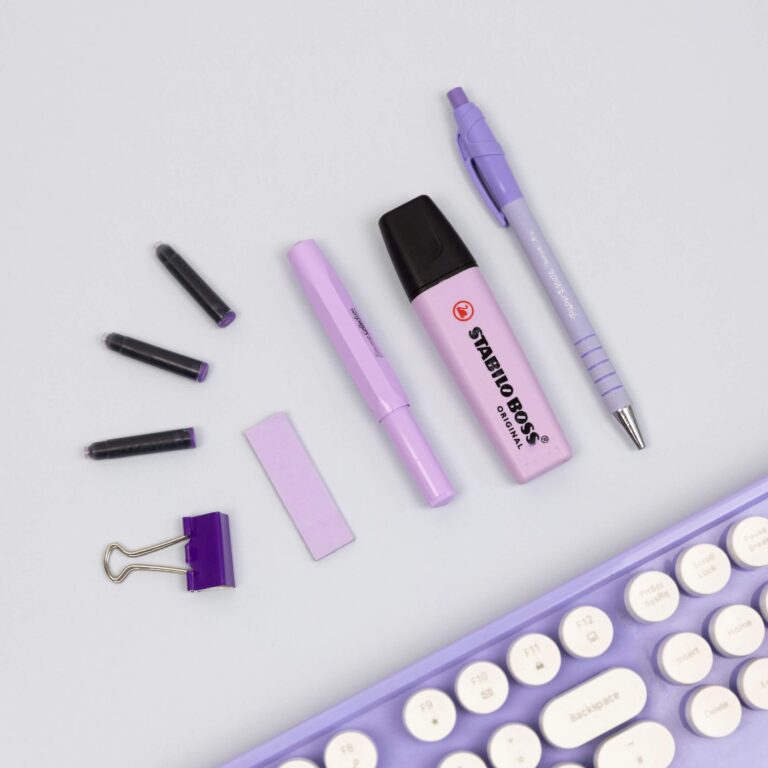In January, I took the whole month off. I did way too much work in Q4 the year before. Just in December I wrote 30,000 words. No, that’s not a typo. And no, I do not use AI. Yes, my fingers and brain were very tired.
I had to take an extended break in January to properly recover and rest. I got to do some of the hobbies I’d completely abandoned for months. When I was immersed in creative, fun, restoring activities, I realised how important hobbies are. Doing things which were not my job made me feel human again. I felt I was coming back to life.
Realising this was surprising, since I completely love my job as a copywriter. It’s literally a dream come true. As in, I dreamed of having a job where I wrote for a living. And now I’m living it.
A job, no matter how creative, cannot fulfil someone completely. We’re all varied, complex, nuanced beings. Having no hobbies at all and then loads of hobbies for a month showed me I need to prioritise them.
But… how? Here’s how I’ve managed to have a hobby- filled few months.
Freelancer hobbies: consider the types of rest you need
Cards on the proverbial, this section is about some background research I’ve done into hobbies. If you’re just after hobby ideas, jump to Hobby idea 1.
I didn’t look at the “types of rest” list and then choose my hobbies. I just noticed that the things I loved to do happened to match up with these principles.
Dr Saundra Dalton Smith is the genius behind the 7 types of rest. You can watch her Ted Talk here, or check out her website here.
If your hobbies give you any of these types of rest, I reckon you’ll be onto a winner.
- Physical rest
Anything that makes your body relax and recover is physical rest. This can be a sound bath, a… wet(?) bath, curling up with a book, stretchy yoga, or a massage.
- Mental rest
AKA: ‘letting your mind wander’. Instead of doomscrolling, nicer versions of mental rest include activities which you don’t need to think about, like colouring or walking in the woods.
- Emotional rest
This one’s a little tricky because you might need some help, like with a therapist. Emotional rest comes from expressing your emotions authentically and safely. Journaling is a great hobby for this.
- Sensory rest
Consider how you use your senses most often and then find hobbies which offer alternatives. So, if you work in a loud environment, silent hobbies will allow you to rest, and vice versa.
- Creative rest
If your job has a lots on prescriptive processes and deadlines, engaging with free-flowing creativity is incredibly restoring. Wander around an art gallery, read poetry, or go to a play to creatively rest
- Social rest
This isn’t as simple as introvert vs extrovert. It’s about intentionally spending time with people in a way which you need. Games, cinema, a great facetime can be restorative. So can spending time alone. - Spiritual rest
Spiritual rest can come from regularly attending religious services at a place of worship. It can also come from meditating or engaging with tarot, or reiki. Simply being in nature can be spiritually restful.
There isn’t going to be a hobby which ticks all the boxes but there are certainly some which overlap. The trick is covering the ones your job depletes. It’ll be different for everyone, but I’ll tell you about my hobbies in the next bit.
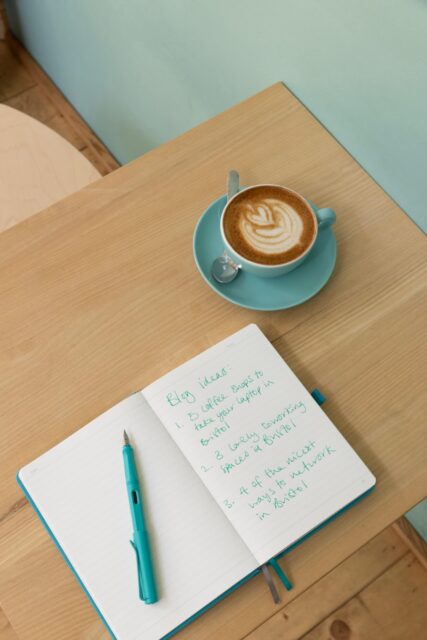
Which hobbies which are opposite to your job?
A good place to start in adding hobbies to your downtime, is to do things which aren’t like your day job. Since I don’t know what your job is, lemme tell you about mine, and then you can apply the same principles to what you do. You’ll be hobbying in no time.
As a copywriter, my job is desk- based, computer- based, physically stationary (imagine me hunched over a laptop for hours at a time), thinky, creative, and deadline- focused. Although I “produce” something (writing) it’s digital, not physical. I’m technically creating something with my hands (since, typing) but not really.
My hobbies are the opposite of my day job and there are a bunch of examples coming up. But… before we get there, let me give you a couple of affirmations you might need to repeat to yourself.
Remember: you don’t need to make money from your hobby. You don’t need a new business. Stop researching domain names right now. You deserve to have fun and relax just for the sake of it.
Hobby idea 1: move your body gently AF
How I do it: Twice a week I lift weights with a personal trainer at a supportive, inclusive Bristol gym. I am not tracking macros or trying to get to particular levels. I just turn up, listen to my body, move it in a way that it needs, and then go home.
Why I love it: I can feel myself unfurling from my gremlin- like typing- posture. I moving constantly for a full hour. I turn up and do what my PT tells me to do- I don’t have to decide or remember what I did last time. My brain is empty apart from counting to 6, or 8, or 10. My PT is supportive and encouraging without being pushy. I get to engage with exercise in a really positive way.
The 7 types of rest: This one’s obvious, but this hobby is a big tick for physical rest. Rest doesn’t have to mean “still”. Lifting weights is the total opposite of how I spend my days so my body experiences what it needs.
Hobby idea 2: immerse yourself in water
How I do it: Ok, I’m not sure I can class ‘having loads of baths’ as a hobby, but they are a really important part of my wellbeing. I lived in my house for 3 years with just a shower room and I missed having a bath so much. My husband and I DIY-ed the bathroom to steal a bit of space from the adjoining bedroom and we managed to fit a bath in. The first bath I had was very bubbly, very hot, and it did something magic to my brain.
Why I love it: If you’re in a bath, everything else you “do” while there is deeply intentional. I might gather a book or tablet or headphones. I’ll choose the drink I want and the scent of bubble bath. I think about if I want a snack or a facemask or a candle. Even if it’s just for an hour or two I’ve intentionally created the precise environment I need. Once I’ve sunk into the water, I can’t help but to relax.
The 7 types of rest: I’m certainly mentally and physically resting but depending on what else is happening I can also experience sensory and spiritual rest.
Hobby idea 3: make something with your hands
How I do it: Every now and then I realise I’ve run out of candles, so I make some new ones. I usually buy about 5 kilograms of soy wax from UK small business Supplies for Candles, and I already have lots of wicks, gel dots, wick holder doodads, and fragrances. While big handfuls of wax slowly melt in a double boiler on my kitchen hob, I prep the containers. They’re mostly old candle holders or vintage-y glass dishes from charity shops. I carefully clean them, dipping them into hot soapy water and selecting which ones to use. Once I’ve stuck the wicks at something resembling a straight angle, it’s time to pour the melted wax. It’s a lovely activity and then, at the end, I have a bunch of new candles.
Why I love it: When I make candles, I am handmaking something, but I don’t really have to think about it. I can work in silence, or listen to music, an audiobook, or a podcast. I always feel proud of my little candles, and I get to enjoy them for months.
The 7 types of rest: Candle making is creatively restful. There’s something so restoring about repetitively stirring the melting wax. It also gives me sensory and social rest.
Hobby idea 4: spend time with yourself
How I do it: I love writing by hand in my journal. There’s something lovely about choosing the right pen and feeling the paper beneath your fingers. Sometimes I journal daily but often I catch up on a few days at once. Usually, I’m just jotting down thoughts and ideas, and whatever’s happened in that day, in a little A6 book. When I need to explore something in more detail, so I’ll dig out my old, battered A5 journal and free write. Free writing is where you just write whatever comes into your head without correction or judgement. My brain always conjures something surprising.
Why I love it: There are no screens or sounds, I’m just focusing on myself. I enjoy the reflecting and summarising aspects, as well as being able to read back over things months later.
The 7 types of rest: Journalling naturally allows for emotional exploration and there can sometimes be a sense of relief or processing. Journaling gives me a sense of peace and connection which also borders on spiritual rest.
Hobby idea 5: let your brain completely switch off
How I do it: Reading allows me to step entirely into someone else’s world and enjoy someone else’s creativity.
I’ve had a Kindle for well over a decade and it’s a vital part of making reading accessible to me. I read in the dark when I can’t sleep, and I carry it easily in my bag wherever I go. The downside is how it ties me to Amazon, which I now feel very icky about. My rule is to only buy books which are on promotion, so I’m giving Amazon as little money as possible. I always buy physical books from indie book shops (shout out to The Small City Bookshop, Heron Books, and Storysmith). I also love to track my reading, and I use The Storygraph app for this. It’s a UK- owned, Black- owned, female- owned alternative to Amazon- owned Good Reads. I can keep on top of my 52 books a year challenge (which I have just about managed for the last 5 years).
Audiobooks also count as reading (to claim otherwise is ableist) and I listen when I’m driving, or on public transport, or cleaning my house, or during one of my other hobbies.
Why I love it: Reading is a solo activity which means I get to spend time by myself. I used to run a book club which gave it a lovely social aspect, but I’ve since handed it over to someone else to manage. I love that I get to explore words and language, but I am consuming them, rather than writing them. I am always inspired and entertained by reading.
The 7 types of rest: It hits my need for creative and mental rest which is always much needed after a day writing blogs and website copy. And, as much as I love socialising, I cherish the social rest reading gives me.

Choose your hobbies with curiosity and joy
Take all the pressure of yourself to choose the “right” hobby, or a “popular” hobby. If they’re not fun, then what’s the point? Start with low- risk, low- cost activities and test them out. Perhaps have a go at a workshop or two. The worst-case scenario is you’ll have a nice day out. If you’re in Bristol (or one of their other cities where I don’t live), check out Yuup and see what takes your fancy.
Alternatively, I send a regular newsletter to my email list which is a roundup of stuff I love. It’s different each time, but I generally include a delicious recipe I’ve made, a lush small Bristol business shout out, a book I enjoyed reading, a journal prompt, an actionable copywriting tip, and any events/ networking opportunities which I’ve spotted. Simply join my email list to receive it, and you’ll have some potential hobby ideas in your inbox every month-ish.
